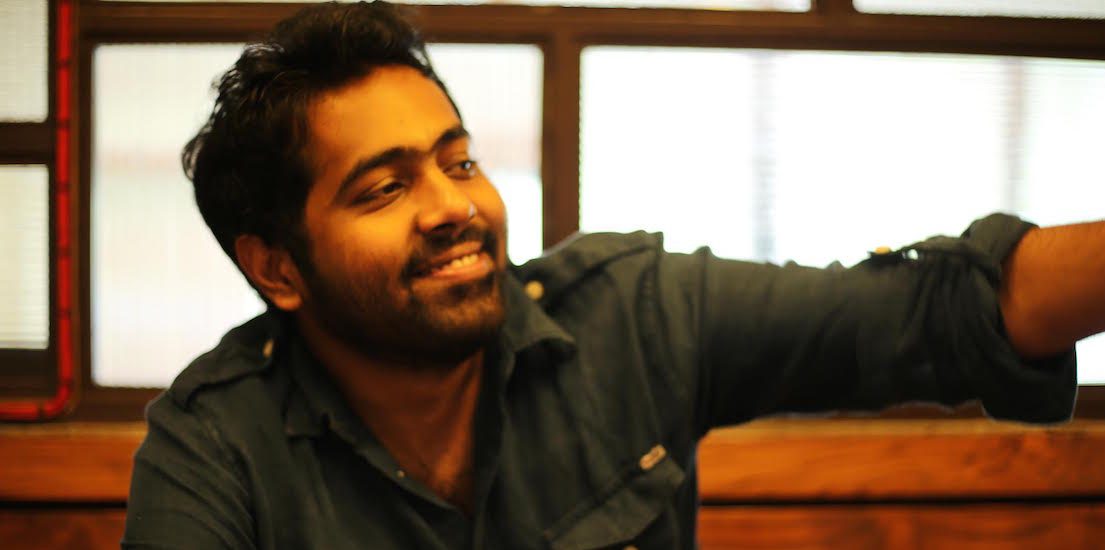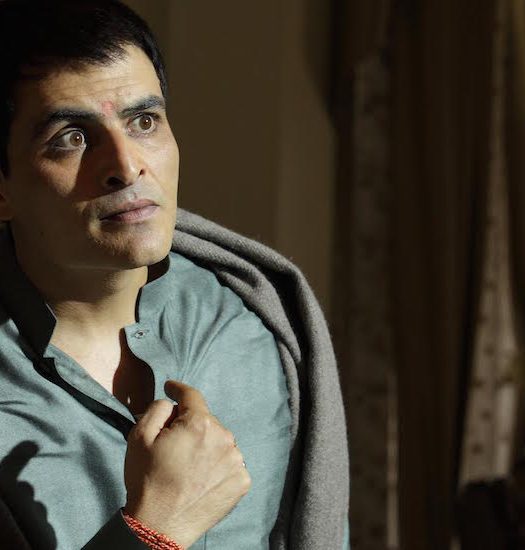My core effort is to appreciate and make good cinema: Mikhil
It’s one of the most anticipated Gujarati films of 2016. It’s also the first of the three-film collaboration between CineMan Productions and Phantom Films, marking the latter’s entry into Gujarati Cinema. Touted as the first Gujarati social thriller, Mikhil Musale’s directorial debut film, Wrong Side Raju, ticks all the right boxes. As the film readies for release on September 9, Pandolin chats with Mikhil about his filmmaking journey, the production process of Wrong Side Raju, collaboration with Phantom and the future of Gujarati Cinema.
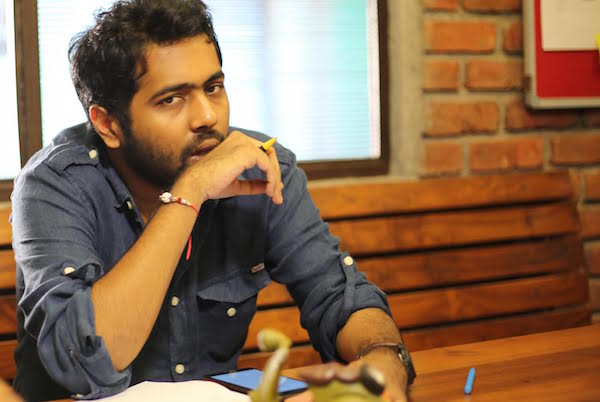
Mikhil Musale
Mikhil, what’s your idea of filmmaking?
See, we almost eat, drink and sleep films day and night. I make films because I love them. Cinema, to me, is one of the most effective platforms to express a story in the best possible way. Very few people get this chance and I feel really privileged, and respect this opportunity. When there are more than a 1000 people working for you, in and out, you are definitely talking about serious business. And when things are at that level, nothing should be taken for granted. My core effort is around appreciating and making good cinema. There are many people whom I admire for their body of work. Anurag Kashyap being the major inspiration because of his hard-hitting style of storytelling. I closely follow Alejandro Inarritu for his style of handling complex narrative structures. Shimit Amin made very few films but I simply love his style of storytelling.
READ: IF YOU TREAT FILMMAKING AS A CAREER, YOU’RE DESTINED TO BE DOOMED – PAN NALIN
How would you describe your journey so far in the world of cinema?
I have always been a dreamer. Even though I had an inclination towards the art, the thought of becoming a filmmaker occurred at a much later stage. I had no idea about what I wanted to do with my life, and the thought of pursuing an engineering degree was absolutely out of ignorance. To be honest, I continued and completed the degree only because I had enrolled in it. Meanwhile, I watched more and more films and took a special interest in filmmaking. Without any formal experience in filmmaking, I made a few experimental short films. They were definitely quite different and after winning a few college level short film competitions, I started believing that I could also be a filmmaker. By the time I was in the 3rd year of engineering, I had already decided that come what may, this is something that I want to do for the rest of my life.
I met Abhishek Jain, currently my partner at CineMan, in 2009. He had recently hailed from Mumbai with some prior experience of assisting well-known directors. We started meeting more frequently after college and talked about films. Eventually in 2010, even before I could complete my engineering degree, we founded a company called “CineMan Productions Ltd”. My source of learning about this art was just reading and watching anything and everything that I could find through closest sources. I knew not-so-much about films and filmmaking at that time. I was learning and experimenting as the work started coming to us.
You’re an integral part of CineMan since it’s inception. Also, it’s fair to say that CineMan is an integral part of the new wave Gujarati Cinema. After redefining Gujarati Cinema, CineMan has once again set out to change the course of the recent line-up of Gujarati films. Do you see this change as a responsibility or a liability?
When we were making Kevi Rite Jaish, the attempt was to make a decent Gujarati film. With Bey Yaar, it was about making a good film that connects to the Gujarati audience all over. With Wrong Side Raju, it’s definitely much more. What I love about cinema is that language isn’t a barrier. I was born and brought up in Ahmedabad. Even though I am born in a Maharashtrian family, I can say I am more of a Gujarati and precisely an Amdavadi. I understand this culture, language, and people the most. Gujarat, being more progressive, compared to many other states, was so far behind when it came to films and filmmaking. We connected these dots and thought, “Why not make films in Gujarat!” Now after 3 films, people have started believing in our dream and they take us a bit more seriously. So, of course, there is a sense of responsibility but we never let it come in the way of our love and dedication for the craft.
What I love about cinema is that language isn’t a barrier
How do you decide if an idea is worth making into a film?
I think it’s quite an organic process. We work on multiple ideas at the same time but I believe that a story which keeps you up at nights and compels you to think more and more about it, that’s the one! This is my simple and personal way to gauge and zero down on the ideas and scripts. I like scripts which are engaging, entertaining and make you think about them, even after the film is over.

Mikhil during the making of Wrong Side Raju
Does a filmmaker have to live his films? How did the idea of ‘Wrong Side Raju‘ come around?
Well, to me personally, a filmmaker who doesn’t live his films is not very serious about his art. Unless, and again which I feel is practically impossible, he’s a genius who still manages to execute a film without living it. Wrong Side Raju‘s germ came from a very controversial hit-and-run accident that happened in Ahmedabad in 2012. It was a horrific accident between a car and a two-wheeler, but what happened a year and a half after the accident, in terms of trial-by-media and public perceptions, was quite fascinating to me. We created a completely fictional plot and weaved in characters around this incident. There wasn’t any preconceived thought to make it a thriller. As we developed the thought further, it came out to be in a drama-thriller space.
A filmmaker who doesn’t live his films is not very serious about his art
What prepared you best for becoming a director? What’s your idea of a collaboration?
I am always curious about things. The fundamental key for me to learn about filmmaking, was to grasp and learn things from whichever source I came across. Of course, no one can skip the basic grammar of this art and my experience as an AD taught me that. I think of it (collaboration) as an organic process. I meet lots of people and ultimately it’s the like-minded ones who stay together.
The first film is always special. Do you think it was better to play the dual role of a director and writer instead of solely directing a film? How was the writing process for this film?
I would always prefer to work on films right from the scripting stage. The execution of a script comes much more naturally after that because you know the origin of scenes, the characters and the fabric of the story. I started writing this story alone. Karan Vyas and Niren Bhatt got associated at a later stage. It was fun, but at the same time quite an intense process. We knew that we were touching lots of technical points through the narrative, hence there was a team of lawyers working with us. The narrative wasn’t simple and there were lots of debates and disagreements internally but we finally cracked it.
READ: LYRICIST & WRITER NIREN BHATT EXCITED FOR HIS NEXT WRONG SIDE RAJU
So was there ever a compromise on writing while handling this topic, say any conscious effort on being politically correct?
No, it’s a completely fictional story borrowed from a lot of news stories. You may relate various plot points to lots of real incidents. But since we weren’t targeting any particular incident, there was no fear of being politically correct.
Wrong Side Raju is a completely fictional story borrowed from a lot of news stories
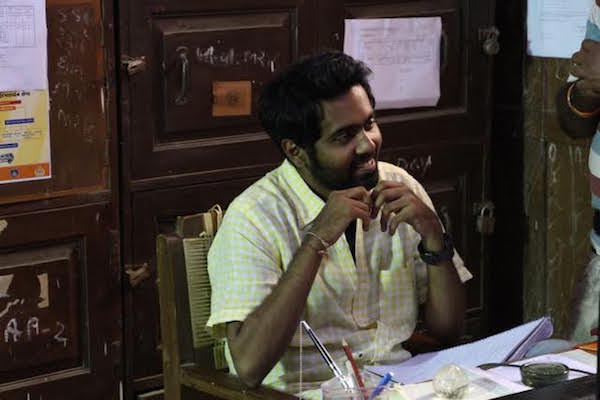
Mikhil Musale
You have worked as an AD before, but this is the first time that you were the ‘Captain of the Ship’. Of course, being on set and directing the first film is exciting, but it comes with its fair share of anxieties. How do you find hope in those tough moments?
People ask me, isn’t it easy to execute a film when technically you have 11 producers on board? I would say yes it is, but it comes with an equal amount of pressure too. When you are making your first film, you have yet to prove yourself. I never get hyper and frustrated while shooting. The entire process was quite a good mixture of excitement, pressure, and anxiety. The journey has been quite difficult yet very interesting. But as they always say that the journey to your first film is never so easy.
The journey to your first film is never so easy
What was the casting process of the film like?
The casting was a mad roller-coaster ride. We knew that this isn’t a cliché hero-heroine-villain structure. Even though the story is narrated from the protagonist, Raju’s point of view, there are six other primary characters who have major roles from the story’s point of view. Again all of these characters are from completely different tangents and background – from a bootlegger-driver to a foreigner girl to a rich brat to a high-profile lawyer. All of them needed to be Gujarati speaking except the foreigner girl. Plus we also had more than 80 supporting characters in the film, and the requirements for those roles were quite specific too. So all in all, it was tough but quite an enjoyable process.
READ: I LIKE TO CAST AS MANY LOCAL ACTORS AS POSSIBLE – SHRUTI MAHAJAN
What was the post-production process like? How did the collaboration with Phantom happen?
We went through an extensive process of editing for around four months followed by other things. We completed our first draft in May 2015. Abhishek and Amit were already excited about this script. While we were still developing the final draft, it was Amit’s idea to narrate the script to Vikas Bahl. They [Phantom] pretty much liked it the first time itself and then it was an organic process of going through the series of narrations. Officially we announced a 3-film deal with Phantom in February 2016, with the first film to be directed by me.
The idea is to make it bigger and better
With Phantom on board, are we looking at a wider release/distribution?
Of course, we are. The idea is to make it bigger and better.
READ: PHANTOM FORAYS INTO REGIONAL CINEMA WITH WRONG SIDE RAJU
On a lighter note, as a part of the social media marketing effort for the film, the creators are sharing the personal success stories of taking a ‘Wrong Side’ per say. Is taking a wrong side good or bad?
Nothing is right, nothing is wrong. It’s all about perspectives and points of view.
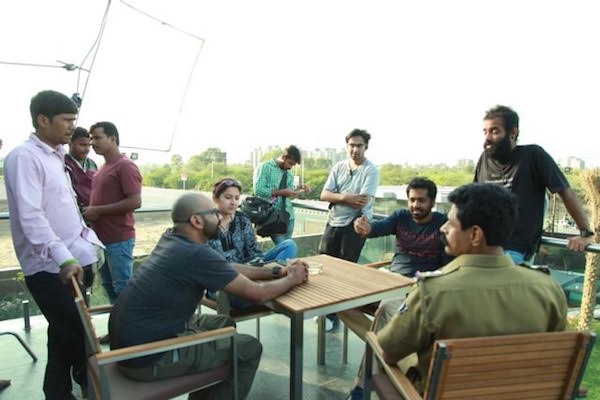
With the team during the making of Wrong Side Raju
What is your overall observation about Gujarati Cinema and the infrastructure for the films in Gujarat?
Honestly, I feel Gujarati cinema is in an infant stage right now. It’s like wet clay, which will shape up to become how the upcoming makers shape it to be. It can go either way.
Gujarati cinema is like wet clay, it will shape up to become how the upcoming makers shape it to be
Where do you see Gujarati Cinema in the coming years?
The way people are making films on different topics, I definitely see it reaching greater heights in the coming future.
READ: A BOOST TO THE GUJARATI FILM INDUSTRY
Your passion for cinema has brought you so far. Do you have any message or suggestion for upcoming filmmakers who are passionate about joining the industry?
Just three words. Passion, self-belief, and patience. That’s it!
What’s next for Mikhil Musale?
I am currently working on 3-4 scripts. Let’s see which one excites me the most to go ahead with. I’ll also be associated with Abhishek Jain’s next feature film.

